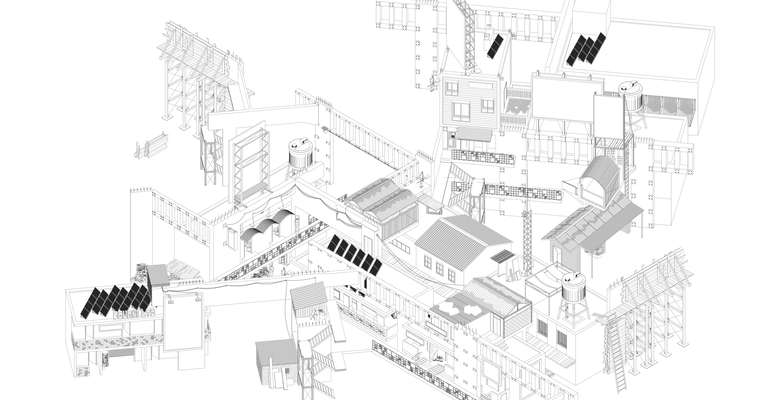Idea by
Tim Peeters
Call for ideas 2019
Detached Architecture
Detached Architecture

- New alliances
City is a concentration services, connected by infrastructures; its shape is determined by attempts at optimizing exchange of these services. Social space is always a by-product: first there is a market, and then there is a square.
The city is in crisis - but in this crisis a liberation of social patterns can be read also - patterns that are detaching themselves from their traditional physical constraints. If architecture wants to stay relevant, it needs to detach itself also. It needs fiction alongside reality.
The city has been partially relieved from its traditional social obligations. City has become customizable; subjective; kaleidoscopic; metaphysical; ironic. City and society communicate through a series of interfaces - an unstable domain of interpretation, navigation and synthesis - of Instagram and AirBnB. "Dwelling, in the proper sense, is impossible," wrote Theodor Adorno - but dwelling, in the proper sense, is no longer en vogue.
Detached Architecture
Detached Architecture

- New alliances
City is a concentration services, connected by infrastructures; its shape is determined by attempts at optimizing exchange of these services. Social space is always a by-product: first there is a market, and then there is a square.
The city is in crisis - but in this crisis a liberation of social patterns can be read also - patterns that are detaching themselves from their traditional physical constraints. If architecture wants to stay relevant, it needs to detach itself also. It needs fiction alongside reality.
The city has been partially relieved from its traditional social obligations. City has become customizable; subjective; kaleidoscopic; metaphysical; ironic. City and society communicate through a series of interfaces - an unstable domain of interpretation, navigation and synthesis - of Instagram and AirBnB. "Dwelling, in the proper sense, is impossible," wrote Theodor Adorno - but dwelling, in the proper sense, is no longer en vogue.